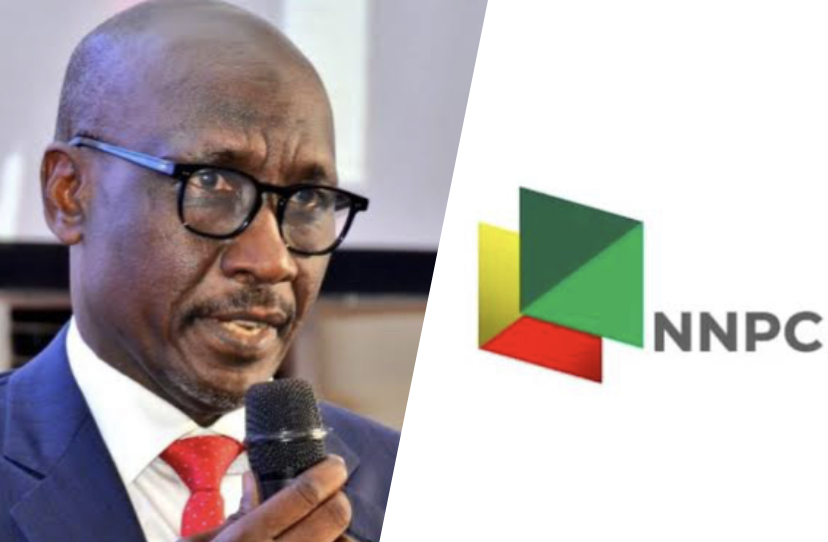Comments and Issues
NNPCL turning a new leaf
Published
1 year agoon

Camillus Eboh is one of the most experienced Nigerian journalists still practicing after over two decades since he began at The Guardian newspaper of Nigeria which is the indisputable flagship of newspapering in Nigeria. This gentleman now works for a foreign news agency known as Reuters.
Last May, Camilus Eboh did a report on the Nigerian National Petroleum Company Limited whereby he disclosed that Nigeria spent more than 11.35 trillion naira ($25 billion) on fixing the country’s three moribund refineries in the past 10 years, the Ninth session of the National parliament said in a report, calling for a forensic audit of the matter.
Despite the huge amounts spent to rehabilitate the refineries, Reuters reported that they were producing at less than 30% capacity, the lower house of parliament said late on Tuesday. This has kept the country reliant on fuel imports, which it subsidies to keep prices low.
The report came as state oil firm NNPC Ltd on Wednesday hiked petrol prices to as high as 557 naira ($1.21) per litre, from 189 naira, days after new President Bola Tinubu said fuel subsidies would be scrapped.
Tinubu has inherited a myriad of problems, including low economic growth, high public debts, double-digit inflation and militant activity.
The lawmakers in the immediate past dispensation transmitted their recommendation to new members and government.
The foreign news agency further observed that NNPC has been working to revamp the refineries, which were shut down entirely in 2021 and produced little or no fuel over the past decade. The management of the NNPCL said it has begun far reaching reforms to make the company a successful and profitable business rather than the persistent bad name it had garnered in the past before its transformation to the present entity known as the NNPCL.
Empirical evidence seem to show that the management has indeed begun the moves to achieve the stated objective of turning the NNPCL around into a transparently governed entity and a profitable company at that.
The recent release of the 2023 Audited Financial Statement (AFS) by the Nigerian National Petroleum Company Limited (NNPCL), which declared a net profit of N3.3 trillion, is not just a financial milestone—it is a testament to a seismic shift in corporate governance, transparency, and accountability within Nigeria’s petroleum industry. The transformation from the old Nigerian National Petroleum Corporation (NNPC) to NNPCL, under the strategic leadership of Group Managing Director Mele Kyari, marks a new era for the organization. This new era signals a decisive departure from the opaque and inefficient practices that once plagued the former NNPC.
To appreciate the significance of NNPCL’s current achievements, reflecting on the dark days of the old NNPC is essential. For decades, the NNPC was synonymous with corruption, inefficiency, and a lack of accountability. Despite its vast resources and strategic importance to Nigeria’s economy, the corporation was notorious for its inability to operate transparently. When they were released, financial statements were often incomplete or unreliable, and the public had little to no insight into the corporation’s inner workings. This lack of transparency bred corruption, mismanagement, and a loss of public trust.
The NNPC’s operations were shrouded in secrecy, with no clear accountability to the Nigerian people. The absence of credible financial reporting allowed corrupt practices to fester unchecked. Revenue leakages, questionable contracts, and unaccounted oil sales became the norm, leading to massive losses for the Nigerian economy. The corporation posted losses yearly, with no clear strategy for turning the tide. By 2018, the NNPC had recorded a staggering loss of N803 billion, underscoring the depth of its financial crisis.
This culture of opacity extended beyond financial reporting. The NNPC’s dealings were often conducted behind closed doors, with little regard for due process. The corporation’s failure to engage with stakeholders, including the Nigerian public, further eroded its credibility. For many Nigerians, the NNPC became a symbol of the worst excesses of public sector corruption and mismanagement.
ALSO READ: Foreign Media and Dangote Refinery: Honest Reportage or Sponsored Mischief?
The transition from the old NNPC to the NNPCL, facilitated by the Petroleum Industry Act (PIA) 2021, has been nothing short of revolutionary. The PIA provided the legal framework for the transformation of the NNPC into a commercially oriented and profit-driven entity, with clear mandates for transparency, accountability, and efficiency. This transition was not merely a change in nomenclature; it represented a fundamental shift in the corporation’s operational philosophy and governance structure.
One of the most significant changes introduced by the PIA was the requirement for NNPCL to publish its audited financial statements annually. This provision has been a game-changer, compelling the corporation to adopt global best practices in financial reporting. For the first time in its history, NNPCL began to operate with the level of transparency expected of a publicly traded company. The regular release of its financial statements has not only enhanced public trust but also provided critical insights into the corporation’s financial health and performance.
The leadership of Mele Kyari, who assumed office as Group Managing Director in 2019, has been instrumental in driving these reforms. Kyari brought a clear vision for transforming NNPCL into a world-class energy company, focused on profitability, efficiency, and accountability. Under his stewardship, NNPCL has implemented far-reaching reforms aimed at enhancing operational efficiency, reducing costs, and maximizing revenue. The results have been nothing short of remarkable.
NNPCL’s 2023 financial performance is a testament to the success of these reforms. The corporation posted a net profit of N3.3 trillion, representing a 28% increase over the previous year’s profit of N2.5 trillion. This impressive financial performance marks the highest profit ever recorded by the corporation since its inception 46 years ago. Such a turnaround would have been unthinkable in the days of the old NNPC, where losses were the norm, and profitability seemed out of reach.
The increase in profit is particularly noteworthy given the challenging operational and economic environment in which NNPCL operates. Despite these challenges, the corporation has managed to enhance its productivity, optimize its resources, and deliver value to its shareholders. The declaration of a final dividend of N2.1 trillion, approved by the shareholders, is further evidence of NNPCL’s commitment to delivering tangible benefits to its stakeholders.
Central to NNPCL’s success has been the strategic leadership of Mele Kyari and the NNPCL Board, chaired by Chief Pius Akinyelure. The Board’s commitment to good corporate governance, transparency, and accountability has been critical in securing shareholder confidence and driving the corporation’s financial performance. Under Kyari’s leadership, NNPCL has adopted a proactive approach to governance, with a focus on institutionalizing transparency across all levels of the organization.
This commitment to transparency is evident in the corporation’s approach to financial reporting. NNPCL’s financial statements are now prepared in accordance with International Financial Reporting Standards (IFRS), ensuring that they meet global standards of accuracy and completeness. This level of transparency is unprecedented in the history of the corporation and has been instrumental in restoring public trust.
Moreover, NNPCL has taken significant steps to enhance its operational efficiency. The corporation has implemented cost-cutting measures, streamlined its operations, and invested in technology to improve its processes. These efforts have not only reduced operational costs but have also improved the corporation’s overall productivity. The result has been a more agile, responsive, and profitable organization.
While the progress made by NNPCL is commendable, it is essential to recognize that the journey toward sustained transparency and accountability is ongoing. The corporation must remain vigilant against any attempts to revert to the practices of the past that nearly destroyed the NNPC. The dark days of corruption, inefficiency, and mismanagement must never be allowed to return.
The history of the old NNPC serves as a stark reminder of the dangers of complacency. The culture of secrecy that once pervaded the corporation created an environment where corruption could thrive. Financial leakages, dubious contracts, and unaccounted revenues were the order of the day, with little to no accountability. This culture not only undermined the corporation’s financial performance but also eroded public trust in its ability to manage Nigeria’s vast petroleum resources effectively.
To avoid repeating these mistakes, NNPCL must continue to strengthen its capacity for transparency and accountability. The corporation must institutionalize the reforms it has implemented, ensuring that they become deeply embedded in its operational culture. This includes maintaining the highest standards of financial reporting, adhering to global best practices, and engaging openly with stakeholders.
One of the key challenges facing NNPCL as it moves forward is ensuring that its commitment to transparency and accountability becomes a permanent feature of its operations, rather than just a temporary shift. To achieve this, NNPCL must continue to invest in its governance structures, processes, and human capital.
The corporation should focus on continuously improving its financial reporting processes to ensure that its statements are accurate, complete, and timely. This will require ongoing investment in technology and training to enhance the capacity of its finance and accounting teams. By maintaining high standards of financial reporting, NNPCL can ensure that its operations remain transparent and accountable.
Good corporate governance is the foundation of transparency and accountability. NNPCL should consistently uphold the principles of good governance, including integrity, fairness, and accountability. This requires the active engagement of the Board and management in setting the corporation’s strategic direction, monitoring performance, and ensuring that all decisions are made in the best interests of the shareholders and the Nigerian people.
Institutionalizing transparency across all levels of the organization is also essential. This involves adopting open and transparent procurement processes, ensuring that contracts are awarded based on merit, and preventing conflicts of interest. By embedding transparency in its operations, NNPCL can reduce the risk of corruption and enhance its reputation as a trustworthy and accountable organization.
The commitment to transparency must also extend beyond internal operations to include active engagement with external stakeholders. This includes regular communication with the public, investors, regulators, and other stakeholders about the corporation’s activities, performance, and plans. By fostering open dialogue, NNPCL can build trust and ensure that its operations align with the expectations of its stakeholders.
Finally, NNPCL must promote a culture of integrity within the organization. This requires a clear commitment from the leadership to uphold ethical standards and hold individuals accountable for their actions. By fostering a culture of integrity, NNPCL can ensure that its employees are committed to doing what is right, even in the face of challenges.
The transformation of NNPC into NNPCL represents a significant achievement for Nigeria’s petroleum industry. However, the journey is far from over. NNPCL must continue to build on its successes, deepen its reforms, and remain committed to transparency, accountability, and efficiency. The corporation’s ability to sustain its profitability, achieve its production targets, and deliver value to its stakeholders will depend on its commitment to these principles.
As NNPCL looks to the future, it must remain focused on its mission of securing Nigeria’s energy future while contributing to the nation’s economic development. The corporation’s ability to achieve these goals will require continued strategic leadership, sound corporate governance, and a relentless commitment to transparency and accountability.
Emmanuel Onwubiko is the Head of HUMAN RIGHTS WRITERS ASSOCIATION OF NIGERIA and was NATIONAL COMMISSIONER OF THE NATIONAL HUMAN RIGHTS COMMISSION OF NIGERIA.
Trending

 Football1 week ago
Football1 week agoChampions League: 12 Clubs knocked out as group phase ends

 News7 days ago
News7 days agoTinubu approves purchase of 2 new satellites to strengthen Nigeria’s digital infrastructure

 Health6 days ago
Health6 days agoFOI data show thousands of heart failures reports linked to AstraZeneca COVID-19 vaccine

 Comments and Issues1 week ago
Comments and Issues1 week agoUN Secretary-General Guterres: Rule of Law being replaced by Law of the Jungle

 Comments and Issues1 week ago
Comments and Issues1 week agoYakubu Mohammed: Exit of a good man

 Comments and Issues1 week ago
Comments and Issues1 week agoBeyond Hope: Why External Pressure Cannot Cure Internal Colonialism

 Comments and Issues1 week ago
Comments and Issues1 week agoOkowa, daughter and politics as family business

 Latest1 week ago
Latest1 week agoKano governor’s aide vows to expose ‘true betrayers’ amid party disputes

